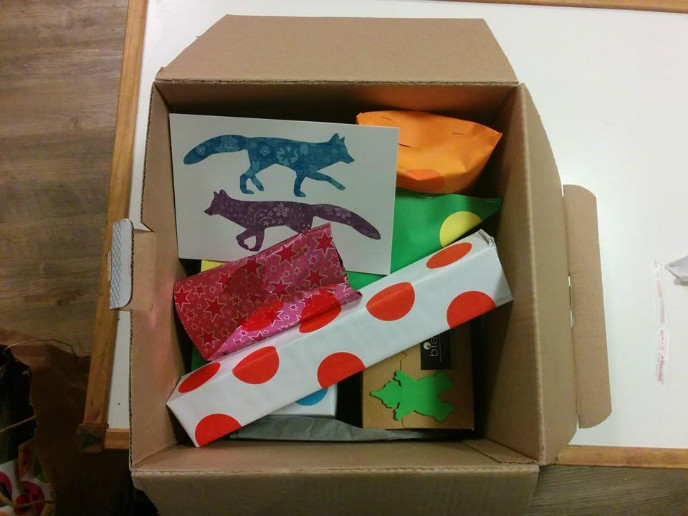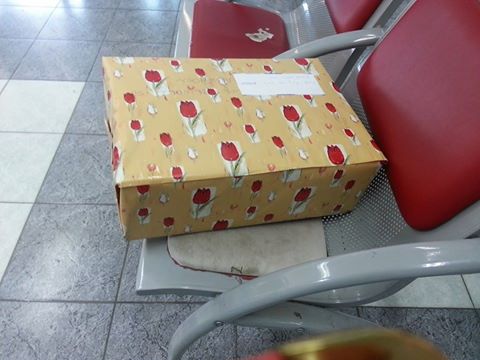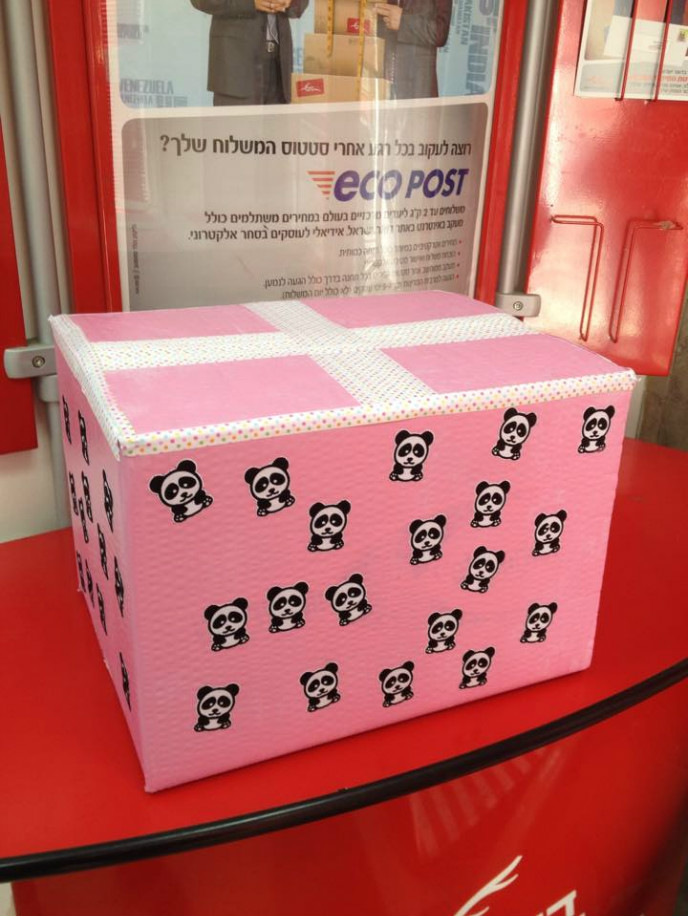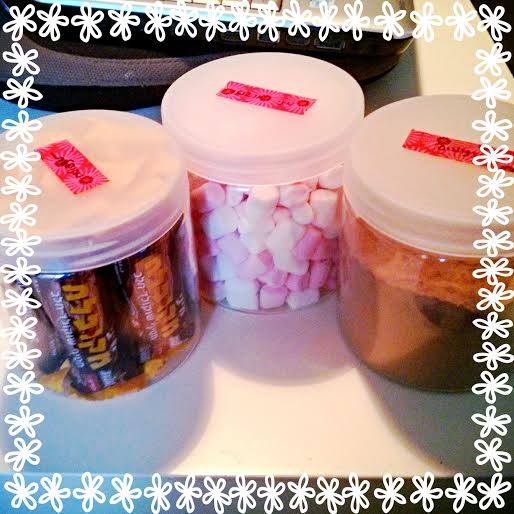
Every evening, in the weeks leading up to the holiday of Purim, we wrap toys, small candies and homemade art for our two older children to give to their friends the next day at school. We’re playing the Israeli version of Secret Santa – known locally as “Giant/Dwarf.”
The game may have been adapted from a jolly, fat man in red and white, but it has become an Israeli school tradition for Purim over the years. After all, according to the Book of Esther, Jews are meant to increase love and friendship amongst themselves as a counter to the evil Haman’s declaration that we’re always fighting.
Haman would definitely disapprove of the goings on: The euphoria in the classrooms is intense and I do not know how the teachers get anything done during this period.
The big reveal – assuming the kids haven’t already told their friends who is who’s “dwarf” (my son’s “giant” identified his handwriting on the card he wrote on the first day) — comes on Purim itself when each dwarf gives her giant mishloach manot, a basket filled with goodies and good wishes.
But it’s not just a kid’s game.
Some of the more tight-knit communities in Israel have adapted this pastime and play a version of “dwarf family” and “giant family” in the run-up to Purim, which falls this year on March 5.
Two 28-year-old Israelis who have long since left school but still wanted to enjoy the gift-giving game, turned to social media to initiate a Giant/Dwarf network for their “friends, acquaintances and strangers” to join. More than 1,000 people signed up for their country-wide match via their Wix website.

“This is an experiment to break boundaries and get people to communicate with one another in a different way,” the organizers told the Yediot Aharonot newspaper. “People have made new friends through this game and maybe we’ll even see new couples.”
The Israel Postal Company has long been lamenting its revenues in the wake of e-commerce and online messaging. But thanks to this viral Giant/Dwarf game now taking place, colorfully wrapped boxes, shiny pink parcels and packages of funny shapes and sizes have suddenly filled post office shelves.

There are no rules in the game, but the two initiators suggest that players give home-baked goodies, homemade arts and crafts, and hamentaschen (triangular Purim cookies, or oznay Haman in Hebrew).
As it is a social media-propelled initiative, it makes sense that the group’s Facebook page is brimming with photos of mishloach manot baskets. Comments under each post have participants guessing who will get what.
And that reminds me, I need to organize mishloach manot for my neighbors.

















